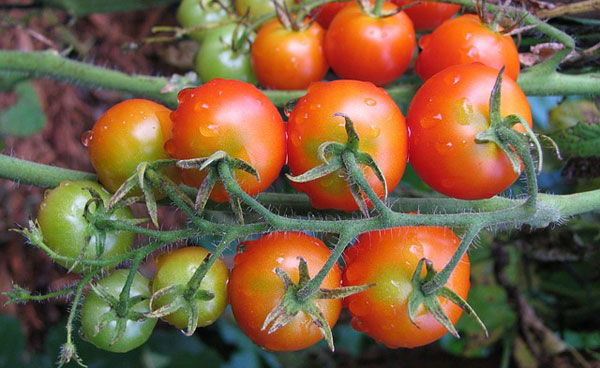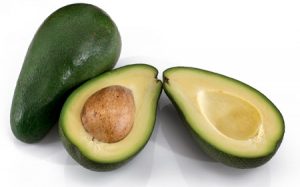There are many tomato varieties in Kenya. Some varieties mature faster and produce bigger fruit. They are more resistant to common tomato diseases. Some tomato varieties in Kenya need warmer weather. Planting the wrong tomato variety will hurt your agribusiness.
You can make money in Kenya through tomato farming if you plant the right tomato variety. The best tomato variety will help increase your tomato farming profit. Tomato fruits are one of the most common vegetables in Kenyan meals, and are ever in high demand. Greenhouse tomato farming has increased the rate of tomato production in Kenya.
The first step in choosing the right tomato variety is to determine the market for your tomatoes: will they be for the fresh market or for processing? Most tomato varieties in Kenya perform better in a greenhouse. Greenhouse tomato varieties have higher yield and give heavier fruits.
Here is an updated tomato varieties in Kenya chart. Consult the local agriculture experts to be sure you are growing the tomato varieties in Kenya that are best for your region. Most tomato farmers plant the crop under small scale greenhouse farming.
Tomato Farming in Kenya: Best Tomato Varieties in Kenya
Here are the most popular and high yielding tomato varieties in Kenya.
Anna F1 Tomato Variety
This tomato variety is a Monsanto hybrid. Anna F1 tomato costs a little more than the regular tomato seeds but it’s worth the cost. Anna F1 has been tested and has been proven to be a top performer in Rift Valley and Mount Kenya regions. It is one of the best tomato varieties in Kenya, and is being grown in small scale greenhouse farming across East Africa.
Anna F1 tomato variety gives very high yields, requires lower labor and is fairly resistant to tomato diseases. It is a fresh market tomato variety that performs best when grown in a greenhouse. Anna F1 has firm, oval shaped fruits that are deep-red in color. It is one of the tomato varieties in Kenya that are resistant to Alternaria stem canker, nematodes and Fusarium wilt.
Anna F1 matures relatively fast: within 75 days after transplanting. Its maturity period depends on the weather. Like with most tomato varieties in Kenya, the first harvest of Anna F1 gives lower yields than later harvests. Anna F1 has an average tomato yield of 74 tons per acre, and 35 kg per tomato plant in its life span.
Faulu Tomato
Faulu is one of the fastest growing tomato varieties in Kenya, reaching maturity 60-70 days after transplanting. Faulu variety gives tomato fruits that are oval shaped, firm and weigh between 85 and 95 grams. Faulu is resistant to fusarium and verticilium wilt.
Mavuno F1 Tomato Variety
Mavuno F1 tomato variety matures about 70 days after transplanting and its fruits are heavier, weighing between 100 and 130 grams. Mavuno F1 is one of the tomato varieties in Kenya with the longest life span of up to a year. Its fruits can stay fresh for 3 weeks at room temperature and is resistant to bacterial wilt, fusarium, tomato mosaic virus and nematodes.
Money Maker Tomatoes
Money Maker is one of the most popular tomato varieties in Kenya. It is a fresh market variety that requires little maintenance. Money maker does well in poor soil. It is hardy to poor weather and needs warmer environment to mature well.
The plant grows to about 5 feet and requires staking. You can easily grow the Money Maker tomato variety outdoors. Like most tomato varieties in Kenya, you should protect your Money Maker plants from frost and maintain warm temperatures – do not plant it during the cold seasons.
Marglobe Tomato
Marglobe tomatoes are also very popular in Kenya. It is a fresh market variety whose fruits weigh between 170 and 180 grams. Marglobe is one of the earliest maturing tomato varieties in Kenya, with an average maturation period of 67 days. It can yield up to 50 tonnes per hectare. It is marketed by the Kenya Seed Company and Simlaw Seeds.
Other fresh market tomato varieties in Kenya include:
- Capitan
- Kentom 1
- Kentom 2
- Beauty
- Tropic
Popular processing tomato varieties in Kenya include:
- Cal J
- Riogrande
- Roma VF
- M – 82
- Parma VF
- Parmamech
- Picardor
- Nema 1401
- Rubino
- Spectrum
- Nema 1400
If you plan to grow tomatoes outdoors, consider their resistance to common tomato diseases. The hardy the variety, the better for outdoor tomato farming in Kenya.
These are the most popular tomato varieties in Kenya. It is recommended that you visit several local greenhouse farmers to learn what they are dealing with in their tomato farming. Remember to ask them which tomato varieties have worked well for them.
Share On Your Favorite Social Media!
Use the following links to spread the word...




